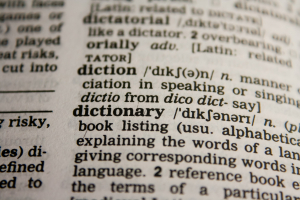Top 10 Definition Essay Examples about Argument
Discover the art of persuasion through our Definition Essay Examples about Argument. These examples break down the elements of effective arguments, offering ... read more...insights into the craft of compelling communication.
-
Essay topic: Understanding debates.
Answer:
Debates are like intellectual battlegrounds, where ideas clash and perspectives collide in a structured exchange of arguments. It's akin to a verbal sparring match, a forum where individuals express their opinions, challenge opposing views, and strive to convince an audience of the validity of their stance. Understanding debates is essential for cultivating critical thinking skills and engaging in thoughtful discourse.
A debate typically involves two sides, each presenting arguments in favor of or against a specific proposition. It's like a chess game, where strategic moves and counter-moves unfold, requiring participants to anticipate and respond to the twists and turns of the discussion.
Moreover, debates thrive on the principle of fairness. It's like a well-balanced scale, ensuring that each side has an equal opportunity to present its case. This fairness allows for a comprehensive exploration of the topic, providing the audience with a more nuanced understanding of the issues at hand.
Debates require careful preparation. It's like studying for an exam, where participants gather relevant information, analyze data, and formulate their arguments. This preparation is the groundwork that empowers individuals to present their ideas coherently and persuasively.
Consider the structure of a debate. It usually begins with an introduction where the topic is presented, followed by the opening statements of each side. It's like setting the stage for a theatrical performance, where the main characters enter and share their initial perspectives.
The heart of a debate lies in the exchange of arguments and rebuttals. It's like a verbal tennis match, with each participant volleying points back and forth. This exchange challenges participants to think on their feet, respond to counterarguments, and refine their positions based on the unfolding dialogue.
In conclusion, debates are dynamic forums for the exchange of ideas, requiring careful preparation, fairness, and strategic thinking. They serve as platforms for intellectual growth, fostering the development of critical thinking skills and encouraging individuals to engage in thoughtful and respectful conversations. Understanding and participating in debates contribute to the cultivation of effective communication and the ability to navigate complex issues in a constructive manner.

Photo by Mikhail Nilov via pexels 
Photo by Werner Pfennig via pexels -
Essay topic: Understanding logical persuasion.
Answer:
Logical persuasion is like a well-crafted argument, a method of convincing others through clear and rational reasoning. It's akin to building a bridge of understanding, where each piece of evidence contributes to a solid foundation. Mastering logical persuasion is essential for effective communication, whether it's expressing your point of view or influencing the opinions of others.
At its core, logical persuasion relies on presenting a strong and coherent argument. It's like constructing a puzzle, where each piece fits logically to form a complete picture. A persuasive argument begins with a clear and compelling claim, a statement that serves as the main idea or thesis.
Moreover, evidence plays a crucial role in logical persuasion. It's like assembling a case in a courtroom, where each piece of evidence supports the claim being made. This evidence can take various forms, including facts, statistics, examples, or expert opinions. The more relevant and credible the evidence, the stronger the persuasive argument becomes.
Consider the role of reasoning in logical persuasion. It's like connecting the dots, explaining how the evidence logically supports the claim. Reasoning is the glue that holds the argument together, guiding the audience through the thought process and helping them see the logical connections between the claim and the evidence.
Logical persuasion is different from emotional appeals or personal attacks. It's like having a respectful conversation, where the focus is on presenting facts and logical reasoning rather than manipulating emotions or attacking the character of the person holding a different view.
In practical terms, mastering logical persuasion involves honing critical thinking skills. It's like sharpening a tool, allowing individuals to analyze information, assess arguments, and construct well-reasoned positions. Logical persuasion empowers individuals to navigate discussions with clarity and coherence, presenting their ideas in a way that is both compelling and respectful.
In conclusion, logical persuasion is a method of communication that relies on clear claims, strong evidence, and logical reasoning. It's about building a bridge of understanding through thoughtful and rational argumentation. Mastering this skill enhances one's ability to express ideas effectively and engage in meaningful conversations that contribute to a constructive exchange of perspectives.

Photo by Pixabay via pexels 
Photo by Monstera Production via pexels -
Essay topic: Understanding scientific argumentation.
Answer:
Scientific argumentation is like building a case in a court of knowledge, where evidence and reasoning form the foundation for understanding the world around us. It's akin to detectives piecing together clues to solve a mystery, a collaborative effort to explore and explain the workings of the natural world. This method is not about proving one's beliefs but about presenting a coherent and evidence-based explanation.
One crucial aspect of scientific argumentation is the reliance on evidence. It's like gathering pieces of a puzzle, each bit contributing to the overall picture. In the realm of science, evidence can be observations, measurements, or experimental results. The strength of a scientific argument lies in the robustness of the evidence supporting it.
Moreover, scientific argumentation involves reasoning from the available evidence. It's like connecting the dots, creating a logical narrative that explains the phenomena under investigation. This process requires critical thinking, where scientists analyze data, draw connections, and make inferences to construct a coherent explanation.
Consider the peer-review process in scientific argumentation. It's like submitting a research paper to a team of experts who scrutinize the evidence and reasoning. This scrutiny ensures the reliability and credibility of scientific arguments, providing a system of checks and balances to maintain the integrity of the scientific process.
Furthermore, scientific argumentation is open to revision. It's like editing a draft to improve clarity and coherence. As new evidence emerges or perspectives evolve, scientific arguments can be refined or adjusted. This adaptability ensures that scientific knowledge is dynamic and responsive to ongoing exploration.
Another dimension of scientific argumentation lies in its collaborative nature. It's like a group of investigators sharing findings and collaborating to solve a complex case. Collaboration enhances the collective understanding of scientific phenomena, pooling diverse perspectives and expertise to enrich the overall body of scientific knowledge.
In conclusion, scientific argumentation is a systematic and collaborative approach to understanding the natural world. It relies on evidence and reasoning, undergoes peer review, is open to revision, and thrives on collaboration. Embracing this method fosters a deeper appreciation for the dynamic process of scientific exploration and contributes to the continuous advancement of human knowledge.

Photo by ThisIsEngineering via pexels 
Photo by Pixabay via pexels -
Essay topic: Understanding social media arguments.
Answer:
Social media arguments are like virtual debates taking place in the vast online arena, where people express opinions and engage in discussions. It's akin to a digital town square, bustling with voices sharing ideas, beliefs, and perspectives. These online debates shape the narrative of social media platforms, influencing opinions and fostering both connection and division.
One essential aspect of social media arguments is the diverse range of voices participating. It's like a global chorus where individuals from different backgrounds, cultures, and experiences converge. This diversity adds richness to the discussions, providing a panorama of perspectives that contribute to a vibrant and dynamic online environment.
Moreover, social media arguments often involve the exchange of information and ideas. It's like a marketplace where thoughts and opinions are the commodities being traded. This exchange becomes a source of learning, allowing individuals to broaden their understanding of various topics and engage in meaningful conversations with others.
Consider the role of social media arguments in shaping public opinion. It's like a ripple effect, where a single argument can create waves of influence across the digital landscape. The collective impact of these discussions can shape societal attitudes, drive social change, and contribute to the evolution of cultural norms.
Furthermore, social media arguments serve as a platform for advocacy and activism. It's like a stage where individuals raise their voices for causes they believe in, sparking awareness and mobilizing support. This activism becomes a catalyst for change, inspiring movements and creating a space for marginalized voices to be heard.
Another dimension of social media arguments lies in their potential for both connection and division. It's like a double-edged sword, capable of fostering unity through shared beliefs or fueling discord when disagreements escalate. Navigating these online discussions requires a balance between expressing individual opinions and respecting the diverse perspectives present.
In conclusion, social media arguments play a significant role in shaping online discourse. They represent a dynamic and diverse exchange of ideas, fostering both connection and division within the digital town square. Understanding the impact of these arguments on public opinion, learning, advocacy, and societal change is essential for navigating the complexities of the online landscape responsibly and thoughtfully.

Photo by Alex Green via pexels 
Photo by Alex Green via pexels -
Essay topic: Recognizing fallacies in arguments.
Answer:
Fallacies in arguments are like hidden traps, potential pitfalls that can mislead and obscure the truth. It's akin to a detective examining a crime scene, spotting inconsistencies and false leads that distort the logical flow of reasoning. Understanding fallacies is essential for critical thinking, enabling individuals to navigate discussions with clarity and discernment.
One common fallacy is the ad hominem attack. It's like shifting the focus from the argument to the person making it. Instead of addressing the substance of the claim, this fallacy attacks the character or motives of the individual, diverting attention from the real issues at hand.
Another fallacy is the appeal to emotion. It's like trying to win an argument by evoking strong feelings rather than presenting solid evidence. This fallacy manipulates emotions to cloud judgment, sidestepping the need for logical reasoning.
Consider the slippery slope fallacy. It's like suggesting that a small, initial step will inevitably lead to a disastrous outcome. This fallacy exaggerates the potential consequences of an action, creating a domino effect scenario without sufficient evidence to support such predictions.
Moreover, the hasty generalization fallacy involves drawing broad conclusions from insufficient or biased evidence. It's like making a sweeping statement based on a limited sample size, ignoring the need for a more comprehensive and representative set of data.
The straw man fallacy involves misrepresenting an opponent's argument to make it easier to attack. It's like creating a scarecrow version of the actual argument, allowing the attacker to knock down a weakened version rather than addressing the real points being made.
In conclusion, recognizing fallacies in arguments is crucial for developing strong critical thinking skills. Whether it's ad hominem attacks, appeals to emotion, slippery slope scenarios, hasty generalizations, or straw man misrepresentations, understanding these fallacies empowers individuals to navigate discussions with a discerning eye and engage in meaningful, evidence-based conversations.

Photo by Anete Lusina via pexels 
Photo by Alex Green via pexels -
Essay topic: Arguments for personal growth.
Answer:
Personal growth is like the blossoming of a flower, a continuous journey of self-discovery and improvement. It's the process of becoming a better version of yourself, unfolding like the petals of a bloom in the garden of life. This journey is not about reaching a destination but about the steps you take, the lessons you learn, and the person you become along the way.
One compelling argument for personal growth is the enhancement of self-awareness. It's like turning on a light within, illuminating your strengths, weaknesses, and values. Understanding oneself is the compass that guides decisions, shapes relationships, and contributes to a deeper sense of fulfillment.
Moreover, personal growth fosters resilience in the face of challenges. It's like building a sturdy bridge that helps you cross turbulent waters. With every obstacle, you grow stronger and more adaptable, learning to navigate the storms of life with grace and determination.
Consider personal growth as an investment in your skills and knowledge. It's like cultivating a garden where each seed of learning and experience contributes to the richness of your abilities. This investment becomes a foundation, allowing you to contribute meaningfully to the world and pursue your passions.
Another argument for personal growth lies in its positive impact on relationships. It's like tending to a garden where healthy relationships bloom. As you grow, you become more understanding, empathetic, and open-minded, nurturing connections that are grounded in mutual respect and shared growth.
Furthermore, personal growth is the key to unlocking your full potential. It's like discovering a hidden treasure within yourself, unleashing talents, creativity, and capacities you never knew existed. This realization becomes the fuel that propels you towards your aspirations and dreams.
In conclusion, personal growth is a journey worth undertaking for various reasons. It leads to self-awareness, builds resilience, enhances skills, enriches relationships, and unlocks hidden potentials. As you navigate this journey, remember that personal growth is not about perfection but progress, embracing the continuous evolution towards a more fulfilled and authentic version of yourself.

Photo by Vera Arsic via pexels 
Photo by Vera Arsic via pexels -
Essay topic: Understanding claim, evidence, and reasoning.
Answer:
Claim, evidence, and reasoning are like the essential ingredients in a recipe for constructing a convincing argument. It's akin to building a solid structure, where each component plays a crucial role in presenting a coherent and well-supported perspective. Understanding these elements is fundamental for effective communication and critical thinking.
A claim is the central idea or statement in an argument. It's like the thesis of an essay, summarizing the main point the speaker or writer is trying to convey. A clear and well-defined claim serves as the anchor for the entire argument, providing a focus for the audience to follow.
Evidence is the supporting information that backs up the claim. It's like the bricks in a wall, providing substance and solidity to the argument. Evidence can take various forms, such as facts, statistics, examples, or expert opinions. The strength of an argument often depends on the quality and relevance of the evidence presented.
Moreover, reasoning is the logical connection between the claim and the evidence. It's like the glue that binds the components together, ensuring a cohesive and rational flow. Reasoning explains how the evidence supports the claim, guiding the audience through the thought process and reinforcing the validity of the argument.
Consider a claim, evidence, and reasoning in a real-life scenario. Suppose someone claims that regular exercise improves overall health. The evidence supporting this claim could include research studies, testimonials, or medical advice highlighting the positive impact of exercise on physical and mental well-being. The reasoning would then connect the evidence to the claim, explaining why and how regular exercise leads to improved health outcomes.
In conclusion, claim, evidence, and reasoning are integral parts of effective communication and critical thinking. They work together like the foundation, walls, and structure of a building, providing a sturdy framework for presenting and supporting ideas. Understanding and applying these components enhance one's ability to construct compelling arguments and engage in meaningful discussions.

Photo by cottonbro studio via pexels 
Photo by cottonbro studio via pexels -
Essay topic: Balancing emotion and logic.
Answer:
Balancing emotion and logic is like taming two spirited horses, each with its own strength and energy. In the journey of decision-making and understanding, these horses represent the heart's feelings and the mind's reasoning. It's akin to walking a tightrope, where finding equilibrium between the two is crucial for thoughtful choices and a harmonious life.
Emotion, the first horse, brings color and passion to our lives. It's like the vibrant hues of a painting, expressing joy, love, and empathy. Emotion is the fuel that propels us forward, adding zest to our experiences and connecting us to the human fabric of emotions. Acknowledging and understanding these feelings is like embracing a warm breeze, infusing life with depth and meaning.
On the other side, logic, the second horse, is like a compass that guides us through the complexities of the world. It's the navigator in the sea of choices, providing a rational framework to understand cause and effect. Logic is the steady hand that helps us navigate challenges and solve problems, ensuring a sense of order and coherence in our actions.
However, the challenge lies in finding the delicate balance between these two forces. Too much emotion without logic may lead to impulsive decisions, while an excess of logic without emotion may result in a life devoid of passion and connection. It's like steering a ship through changing waters, adjusting the sails to ensure a smooth and purposeful journey.
Balancing emotion and logic is essential in relationships. It's like a dance where emotions harmonize with rational communication, fostering understanding and empathy. When these two horses move in sync, relationships become bridges connecting hearts and minds, creating a resilient and supportive foundation.
In conclusion, balancing emotion and logic is a lifelong art, a dance between the heart's desires and the mind's reasoning. It's about recognizing the strengths of both, allowing them to complement each other. This balance enriches decision-making, relationships, and the overall tapestry of life, creating a harmonious melody that resonates with the beauty of thoughtful living.

Photo by Mateusz Dach via pexels 
Photo by Pixabay via pexels -
Essay topic: Understanding Decision-making and sound arguments.
Answer:
Decision-making is like navigating through a maze of choices, and sound arguments are the guiding lights that help us choose wisely. In the intricate web of life, decisions are the bridges we build, connecting where we are to where we want to be. Imagine a map where each decision is a plotted course, and sound arguments are the compass that keeps us on track.
Consider decision-making as a puzzle where every piece represents a choice. These choices may be as simple as what to eat for breakfast or as complex as choosing a career path. Sound arguments act as the glue that holds the pieces together, helping us see the bigger picture and make decisions that align with our goals and values.
Moreover, sound arguments provide a foundation for decision-making. It's like constructing a sturdy house where each brick represents a well-thought-out reason or evidence. These bricks form a structure of logic and rationale, ensuring that our decisions are not based on whims but on a solid foundation of careful consideration.
The beauty of sound arguments lies in their ability to bring clarity to complex situations. It's like turning on a light in a dark room, allowing us to see different perspectives and weigh the pros and cons. This clarity becomes a compass, helping us navigate the intricate terrain of decision-making with confidence and understanding.
Consider the role of sound arguments in communication. It's like having a conversation where ideas flow smoothly, supported by evidence and reasoning. This communication becomes a bridge, connecting individuals and fostering a collaborative approach to decision-making.
In conclusion, decision-making and sound arguments are intertwined aspects of navigating life's choices. It's a journey where choices shape our paths, and sound arguments guide us through the twists and turns. Understanding the importance of sound arguments in decision-making equips us with the tools needed to make thoughtful choices and build a path towards a fulfilling and meaningful life.

Photo by Andrea Piacquadio via pexels 
Photo by Sora Shimazaki via pexels -
Essay topic: Negotiating Everyday Matters.
Answer:
Negotiating everyday matters is like a skillful dance, a way of navigating the small challenges that sprinkle our daily lives. It's akin to finding common ground, a gentle art that helps individuals reach agreements and solve problems without unnecessary conflict. This skill is not just for business or big deals but plays a role in the tapestry of our routine interactions.
At its core, negotiating involves communication and compromise. It's like finding a middle path, where each party gives a little to meet in the middle. This process requires active listening, understanding the concerns of others, and expressing one's own needs and desires with clarity.
Moreover, negotiating everyday matters is about problem-solving. It's like untangling a knot, unraveling the complexities that may arise in simple, day-to-day situations. Whether it's deciding what to have for dinner or coordinating schedules with family members, negotiating helps find solutions that work for everyone involved.
Consider the importance of flexibility in negotiating. It's like a tree bending in the wind, adapting to different situations. Flexibility allows individuals to adjust their approach, explore various options, and find compromises that accommodate the ever-changing nature of life.
Negotiating also involves finding common interests. It's like discovering shared ground, areas where the needs and wants of all parties overlap. Identifying common interests forms a strong foundation for agreements, fostering collaboration and creating win-win situations.
In practical terms, negotiating everyday matters requires patience and empathy. It's like walking in someone else's shoes, understanding their perspective and feelings. Patience allows individuals to navigate discussions without rushing, providing the time needed to explore solutions thoroughly.
In conclusion, negotiating everyday matters is a valuable skill that we use in numerous aspects of our lives. It's about communication, compromise, problem-solving, flexibility, and finding common ground. Mastering this art enriches our relationships, enhances teamwork, and contributes to a harmonious and cooperative daily existence.

Photo by fauxels via pexels 
Photo by Andrea Piacquadio via pexels































